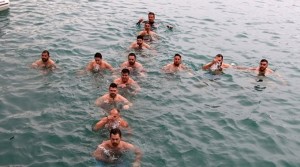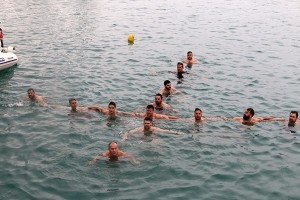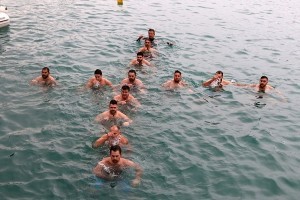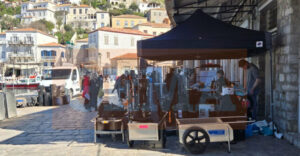The Orthodox Christian custom of blessing the waters on the day of Epiphany was celebrated throughout the country, despite the severe weather conditions. The menacing weather in Heraklion, Crete led to the cancellation of the Epiphany festivities, including the traditional throwing of the cross by the priest into the waters. But this did not deter a group of 15 faithful, who took matters into their own hands and decided to dove into the city’s port and formed the shape of a cross themselves. On the island of Chios the ceremony went on despite the heavy rainfall, but only one man braved the conditions and dove in after the cross. In the city of Patra, in the Peloponnese, where temperatures were close to zero, swimmers almost got into a fight while contesting on who would grab the cross.
The Feast of the Epiphany was established as a solemn feast in the Eastern Church in the middle of the IV century. The Greek word “epiphany” means manifestation and applied by the Christians to the life of Jesus Christ, it specifically meant the manifestation of His divinity. St. John Chrysostom elucidates: “Why do we call this day Epiphany? Because Jesus Christ manifested Himself to all people, not when He was born, but, rather, when He was baptized. Until that time He was unknown to the people, as testified by St. John the Baptist, saying,: ‘There stands among you One, Whom you don’t know!’
Ask me anything
Explore related questions







